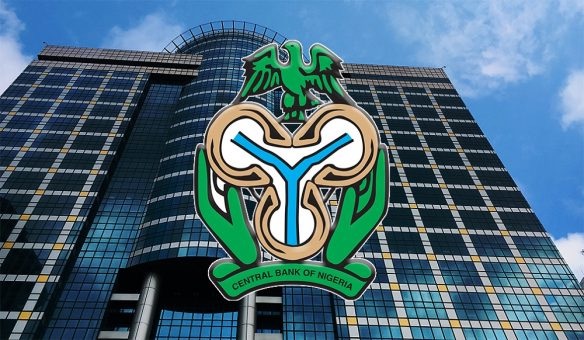By Chinwendu Obienyi
Nigeria’s international payments declined by 14.3 per cent year-on-year (y/y) in the first eight months of 2025, reflecting weaker foreign debt service payments and sluggish direct remittances, data gleaned from the Central Bank of Nigeria (CBN) revealed at the weekend.
International trade refers to money transfers made from one country’s official channel to another to settle financial obligations.
According to the data, total cross-border payments facilitated by the apex bank fell to $4.14 billion between January and August 2025, compared with $4.83 billion in the same period of 2024. The drop comes despite signs of improved foreign exchange (FX) liquidity in recent months.
Foreign debt service, the largest single component of Nigeria’s international payments, fell 6.5 per cent y/y to $2.86 billion, accounting for 69.2 per cent of total outflows.
Furthermore, direct remittances, mostly linked to Nigerians funding education, healthcare, and other overseas services, dropped sharply by 48.9 per cent to $671.9 million, from $1.32 billion in 2024.
In contrast, payments via letters of credit rose 33.3 per cent y/y to $605.0 million, supported by improved FX availability. Analysts say the increase signals recovering import demand, especially for manufacturers dependent on foreign inputs while adding that with inflation still elevated, Nigerians are cutting down on overseas spending.
Chief Executive Officer, Centre for the Promotion of Private Enterprise (CPPE), Muda Yusuf, said, “Households are under immense pressure. With inflation still elevated and the naira only recently stabilising, many Nigerians are cutting back on overseas spending. The sharp fall in education- and healthcare-related remittances reflects squeezed household incomes.”
The policymakers must focus on growing non-debt sources of FX inflows, oil production, non-oil exports, diaspora remittances, and foreign investment. Otherwise, Nigeria risks being trapped in a cycle where debt service dominates external payments at the expense of development spending.”
For his part, Professor of Capital Markets at Nasarawa State University, Prof Uche Uwaleke, said, the rise in letters of credit is a positive development.
“It shows that importers are gradually returning to formal channels as liquidity improves. It also reflects a degree of confidence that the CBN’s FX reforms are working”, Uwaleke explained.
Despite the overall decline, the country’s debt obligations continue to dominate its external payments landscape. The Federal Government faces a critical test in November, when it must refinance a $1.20 billion Eurobond maturing in 2025.
Market watchers expect this refinancing, alongside other multilateral and bilateral repayments, to push international payments higher in the final quarter of the year.
Debt service remains Nigeria’s Achilles’ heel,” said a senior Lagos-based economist at a research firm, who asked not to be named. “Even though payments fell this year, the pipeline of obligations is heavy. Rising global interest rates make refinancing costlier, putting pressure on reserves and the fiscal balance.”
The country’s public debt stood at about $114 billion as of mid-2025, according to the Debt Management Office (DMO), with external debt making up more than 40 per cent. Servicing costs have increasingly crowded out fiscal space for capital spending, a trend analysts warn could weigh on growth prospects.
Nigeria is not alone in grappling with rising debt service costs and subdued remittances. Across sub-Saharan Africa, governments are wrestling with higher global borrowing costs, weaker external inflows, and rising import needs.
Ghana, which restructured $13 billion of Eurobonds earlier this year, saw its external debt service fall sharply in the first half of 2025 but remains locked out of international capital markets. Kenya, meanwhile, made a $2 billion Eurobond repayment in June, drawing down heavily on reserves to avoid default. Both economies have also reported weaker remittance-linked outflows as households adjust to tighter budgets.
Speaking on the development, Founder, Cowry Asset Management Limited, Johnson Chukwu noted that the trend across Africa shows that external debt remains a key vulnerability.
According to him, “Nigeria’s case is more complex because while Ghana and Kenya have pushed ahead with debt restructuring or repayments, Nigeria continues to rely on refinancing. This makes liquidity management even more critical.”
Chukwu noted that international payments is expected to rebound in the short term. In addition to the Eurobond refinancing, stronger FX liquidity and a firmer naira are likely to support higher outflows through letters of credit and remittances.
International payments will rise again as the economy normalises. Import demand is set to increase with a stronger naira and better macroeconomic conditions, while the government cannot escape its debt obligations”, he said.
Still, risks remain. Inflation, though moderating, is eroding household incomes and may limit remittance outflows linked to education and medical payments. Meanwhile, global financial conditions remain tight, exposing Nigeria to refinancing risks if investor sentiment weakens.
For the CBN, the mixed signals in the data highlight the importance of sustaining liquidity in the FX market while maintaining macroeconomic stability. Lower international payments in the first eight months provided temporary relief for reserves, but the coming wave of debt maturities could reverse that trend.
The sharp fall in international payments underscores the twin challenges of meeting external obligations while supporting domestic welfare. For now, the data suggest that tighter household budgets and a more cautious fiscal approach are shaping the country’s cross-border financial flows, a trend mirrored in other African economies under debt stress.

















Leave a comment